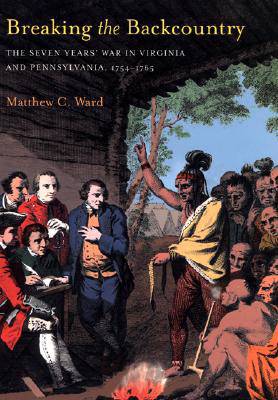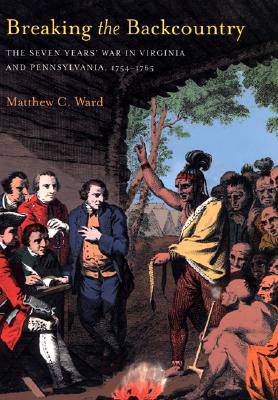
- Retrait gratuit dans votre magasin Club
- 7.000.000 titres dans notre catalogue
- Payer en toute sécurité
- Toujours un magasin près de chez vous
- Retrait gratuit dans votre magasin Club
- 7.000.0000 titres dans notre catalogue
- Payer en toute sécurité
- Toujours un magasin près de chez vous
41,95 €
+ 83 points
Description
Even as the 250th anniversary of its outbreak approaches, the Seven Years' War (otherwise known as the French and Indian War) is still not wholly understood. Most accounts tell the story as a military struggle between British and French forces, with shifting alliances of Indians, culminating in the British conquest of Canada. Scholarly and popular works alike, including James Fennimore Cooper's Last of the Mohicans, focus on the action in the Hudson River Valley and the St. Lawrence Seaway. Matthew C. Ward tells the compelling story of the war from the point of view of the region where it actually began, and whose people felt the devastating effects of war most keenly-the backcountry communities of Virginia and Pennsylvania.
Previous wars in North America had been fought largely on the New England and New York frontiers. But on May 28, 1754, when a young George Washington commanded the first shot fired in western Pennsylvania, fighting spread for the first time to Virginia and Pennsylvania. Ward's original research reveals that on the eve of the Seven Years' War the communities of these colonies were isolated, economically weak, and culturally diverse. He shows in riveting detail how, despite the British empire's triumph, the war brought social chaos, sickness, hunger, punishment, and violence, to the backcountry, much of it at the hands of Indian warriors.
Ward's fresh analysis reveals that Indian raids were not random skirmishes, but part of an organized strategy that included psychological warfare designed to make settlers flee Indian territories. It was the awesome effectiveness of this "guerilla" warfare, Ward argues, that led to the most enduring legacies of the war: Indian-hating and an armed population of colonial settlers, distrustful of the British empire that couldn't protect them. Understanding the horrors of the Seven Years' War as experienced in the backwoods thus provides unique insights into the origins of the American republic.
Previous wars in North America had been fought largely on the New England and New York frontiers. But on May 28, 1754, when a young George Washington commanded the first shot fired in western Pennsylvania, fighting spread for the first time to Virginia and Pennsylvania. Ward's original research reveals that on the eve of the Seven Years' War the communities of these colonies were isolated, economically weak, and culturally diverse. He shows in riveting detail how, despite the British empire's triumph, the war brought social chaos, sickness, hunger, punishment, and violence, to the backcountry, much of it at the hands of Indian warriors.
Ward's fresh analysis reveals that Indian raids were not random skirmishes, but part of an organized strategy that included psychological warfare designed to make settlers flee Indian territories. It was the awesome effectiveness of this "guerilla" warfare, Ward argues, that led to the most enduring legacies of the war: Indian-hating and an armed population of colonial settlers, distrustful of the British empire that couldn't protect them. Understanding the horrors of the Seven Years' War as experienced in the backwoods thus provides unique insights into the origins of the American republic.
Spécifications
Parties prenantes
- Auteur(s) :
- Editeur:
Contenu
- Nombre de pages :
- 360
- Langue:
- Anglais
- Collection :
Caractéristiques
- EAN:
- 9780822958659
- Date de parution :
- 17-10-04
- Format:
- Livre broché
- Format numérique:
- Trade paperback (VS)
- Dimensions :
- 158 mm x 232 mm
- Poids :
- 503 g

Les avis
Nous publions uniquement les avis qui respectent les conditions requises. Consultez nos conditions pour les avis.






